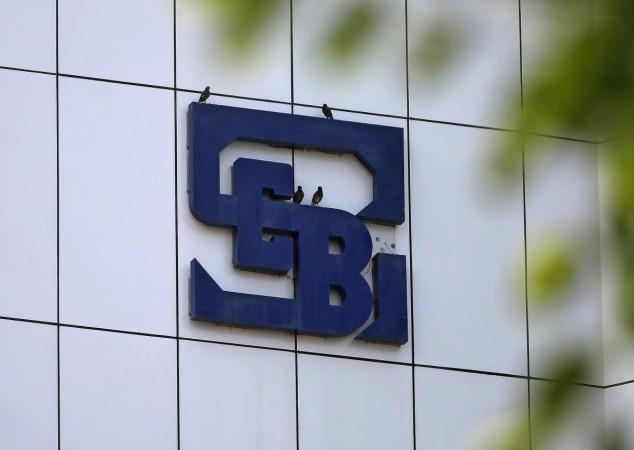
There never may be an ideal time to act against money laundering. The government is staying true to its lines by intensifying a crusade to ferret out shell companies trading in stocks as well as laundering black money by serving as utensils for "investments". It is clear that multi-agency probes are in the offing.
The August 7 directive by market regulator Securities Exchange Board of India (SEBI) banning 331 shell companies from trading has caught many by surprise. To be fair to the regulator, it was a necessary step. Shell companies are a menace to the proper functioning of honest markets. Though, SEBI's initial arguments of cash deposits being received by these companies in the wake of last November's demonetisation exercise is unsubstantiated for now, when investigations have not thrown up much.
And, if any such enquiry was happening, it should have been in the public domain so that honest (or gullible) investors could have exited the companies before trading in their stocks was halted by SEBI.
However, of immediate substance is the regulator's observation that some of these companies have shown on their books contracts that are not related to any actual work and could have been mentioned just to inflate turnover, or with the sole purpose of evading taxes, while a few of them are already barred by various authorities across the country. Also under the scanner are funds shown as foreign or domestic 'private equity investment'.
Quite a few of the companies named by SEBI have objected to being placed on the surveillance list and promised all necessary details and assistance to the authorities to get the matter resolved quickly. BSE and Alternative Investment Market-listed SQS India, a business software assurance and testing specialist focussed on the financial sector, is one such company presently pursuing what appears to be a futile quest to revoke SEBI's trading ban.
Quashable exceptions
The Securities Appellate Tribunal (SAT) stayed the operation of SEBI's notification, after companies like SQS India promised to rectify the issue by furnishing all necessary documents needed to be back in business. The accused companies rightly said they were not given a chance to contest SEBI's charge or showcaused about the exact nature of the charges. SAT overturned the directive in double quick time.
Realty companies J Kumar Infraprojects, steel firm Prakash Industries, Parsvnath Developers and edible oil manufacturer Kavit Industries have managed to get SEBI's trading restrictions lifted with help from SAT.
Scroll down for video

An unexpected incentive for SAT to stay the SEBI order was the regulator claiming that it had not been coming to conclusions. Then why was the directive issued and thousands of media bytes generated albeit with little heat and lots of righteous indignation? Besides, the core rationale for SEBI's action was equally unbelievable in hindsight – a list forwarded by the Ministry of Corporate Affairs and a drastic measure announced on mere suspicion and little information or information dissemination.
Many companies came to know about the development after SEBI's directive was published on the websites of the Bombay Stock Exchange (BSE) and the National Stock Exchange (NSE). Yet, their scrips have not been transferred back to the normal trading segment of the exchanges, adversely affecting the interests of shareholders in these companies.
Although the finance ministry later clarified that the companies would be given an opportunity to defend themselves, the opacity of the order adversely affected the interests of minority shareholders. Due to the suspension of trading without notice, minority investors did not get a chance to assess the situation and, possibly, exit these stocks in an orderly fashion.
What particularly riles the companies is that upward movement of their stock prices has been arrested beyond the last traded price. This seems sensible enough when a majority of companies, a bulk of them based in Kolkata and New Delhi, on Sebi's list are indeed questionable entities with no semblance of revenues or recurrent cash flows.
SEBI was duty bound to investigate and deny access to suspicious companies at the outset. Unfortunately, the regulator's directive has been akin to locking the stables after the horses have bolted. And, what happens to the money invested in these companies by individual investors? Will their interests be protected? So far, SEBI has offered little hope in this direction.
Therefore, the Additional Surveillance Deposit of 200 percent being slapped on the trade value of the stocks of these "blacklisted shell companies" – at this stage, on mere grounds of suspicion -- looks egregious, when the culpability of many of them is yet to be established conclusively.
Identifying the mollusc
A definition for shell companies does not really exist under the Companies Act and applying the term to fake entities employed in round-tripping of money is only part of the financial manoeuvring story. SEBI has been going about the task of specifying strictures and penalties upon companies on its offender list well before it even directed the stock exchanges to investigate their credentials. That looks odd.
When a clear definition does not exist in the Companies Act, does it make sense to amend the Act and strengthen the inspection and oversight mechanisms to prevent formation of shell companies? Coming from a well meaning government, Finance Minister Jaitley's answer to the question in the Lok Sabha, has been surprisingly, in the negative. To another query on whether many shell companies had been set up in the recent past to launder black money and hold benami property or companies, the minister again replied in the negative. So, wherein lies the problem?
Shell or bogus companies have long been in existence to hold unaccounted wealth in trust while acting as below-the-radar proxies to cater to the needs of a primary (or registered), visible arm of a business. They expedite access to funds without companies having to go through cumbersome regulatory processes and due diligence by regulatory authorities. That makes them illegal.
But companies have been concerned that SEBI's notification did not specify the criteria adopted in identifying the 331 companies en route to bracketing them under the taxonomy of mollusc. Going by the money laundering definition, it is well known that even established companies can be used as fronts which provide platforms for money laundering and converting unaccounted or black money into white.
SEBI has not really addressed these issues in its directive; it does not as much as break a sweat about minority shareholder interests as much as it does on the broker-company nexus which can manipulate share prices and use them to launder black money through circular trading.
Share prices of a listed entity are often rigged by shell company managements by booking large lots and not going in for final purchases. In the interim, the share prices rise just high enough for managements to make a killing when their accomplice brokers offload them on an unsuspecting market. Often, the shares are sold back to the promoters who either reap capital gains, or grab tax breaks after intentionally booking losses, while the accomplices pay them the balance by way of cash, which is not accounted -- black money in popular parlance.
Illicit pastimes
Prices can also be rigged down through sizeable market purchases by crony buyers acting on behalf of the promoter who buy shares sold by the promoter and receive cash payments illegally for their shares. Small brokers, their promoters and crony buyers who make payments under the table, have therefore, rightly been of interest to SEBI which has not spared too much of a thought to shareholder pains at the moment.
A large number of the 'shell firms' identified by SEBI are linked to businesses like real estate, commodities and stock broking, films and television (including those on digital platforms), plantation and non-banking financial services. SEBI has noted a worrying trend where several of these companies, including listed ones, could have helped launder money collected illegally through unlawful money-pooling schemes by groups already barred by one regulator or the other.
Both brokers and minority shareholders in these companies have too much skin in the game. But it is the brokers, especially the smaller ones, whose companies are in the list of SEBI's suspected shell firms. Their links to the bigger brokerage groups are of huge interest to SEBI which has brought insider trading and share price manipulation to the forefront of its investigations.
While SEBI's decision to restrict share trading has been reversed in the case of some firms after they approached the SAT, it has been permitted to go ahead with its probe against them and others who could have violated securities laws. If SEBI and the Serious Fraud Investigation Office indeed come up with tangible and workable results after their investigations into the affairs of the 331 companies, it would be prudent to make them public.
Finance Minister Arun Jaitley told Parliament last week that as many as 1.62 lakh shell companies have been deregistered already, even as the government has targeted around 30,000 suspected shell companies and their directors in 2016-17. He has rightly pointed out the need for a balance to be maintained between ease of doing business and ensuring that wrongdoing is stamped out.
Conversely, it is the urge to facilitate ease of business through legislation with little or no due diligence built into it which has enabled companies of questionable origin to be registered in as little as 48 hours -- with the intention of perpetrating financial chicanery under fake names and fake motives by proprietors mostly never traceable or identifiable. SEBI and the government must find the right balance between sheer zeal and targeted policy moves.

















